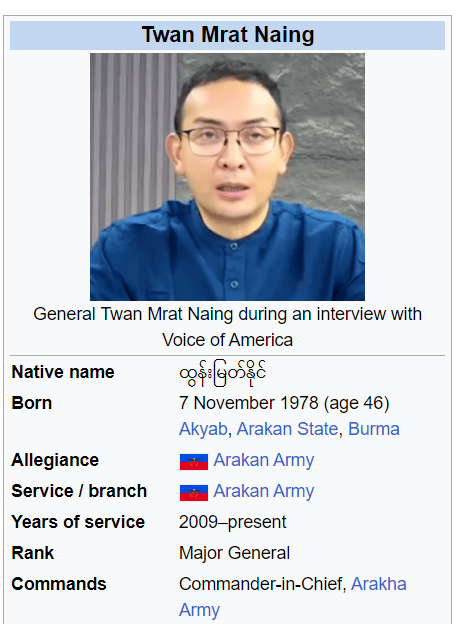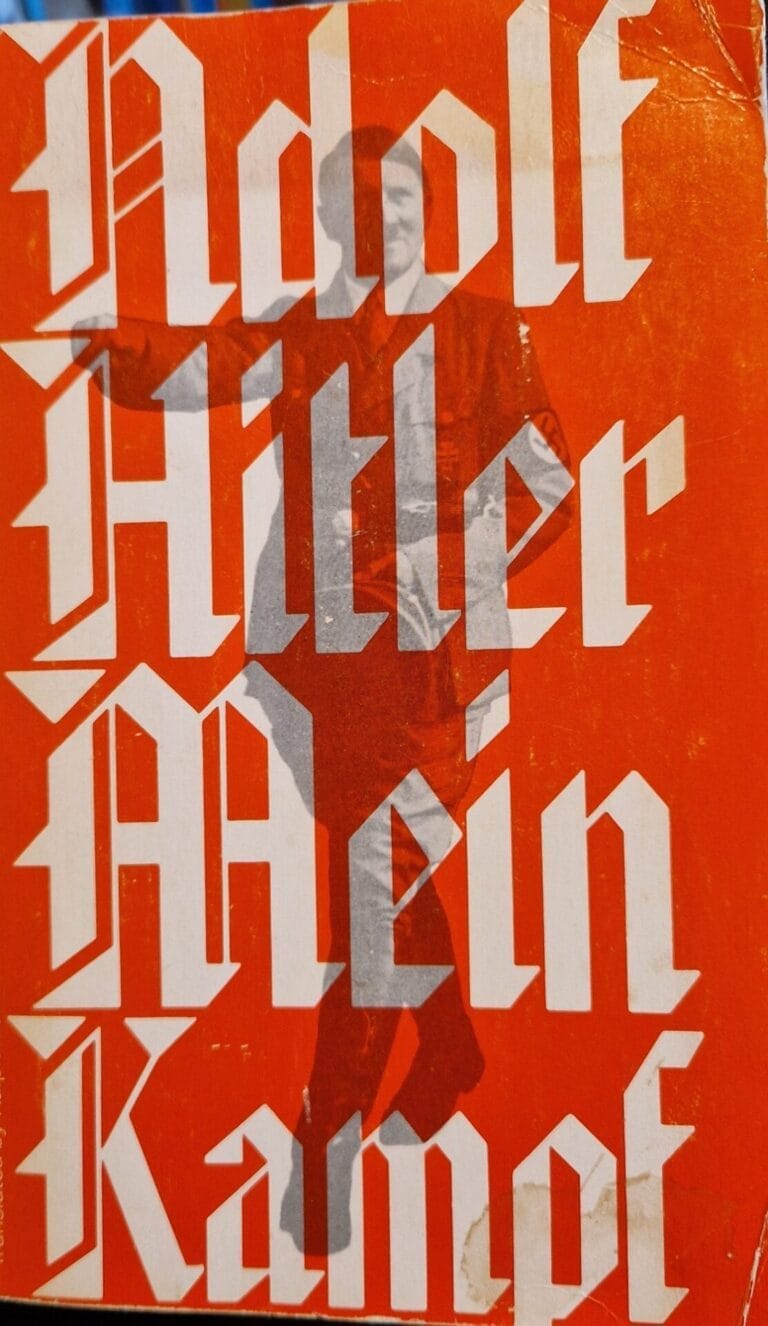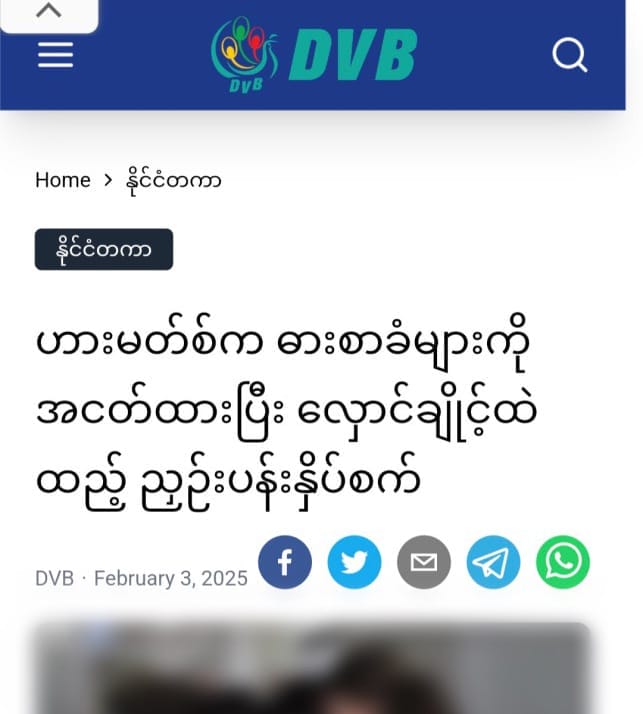Above: file photo – Arakan Army Training, 2019. Wikipedia Commons
Over the last 36 years, I have been deeply involved in different waves of Myanmar’s anti-dictatorship opposition, both non-violence and armed, after the bloody crackdown of peaceful and unarmed “people power” revolt of 8 August 1988 (or 8888 uprising).
 During that period, for the last almost 15 years since the word Rohingya hit international headlines in the autumn of 2011 – BBC World Service used a map of Myanmar which made a mention of Rohingya as a part of the country’s ethnic tapestry in Western Myanmar next to Bangladesh – I have devoted my time and labour monitoring the alarming rise of Islamophobia in general, and the anti-Rohingya racism of genocidal character in particular.
During that period, for the last almost 15 years since the word Rohingya hit international headlines in the autumn of 2011 – BBC World Service used a map of Myanmar which made a mention of Rohingya as a part of the country’s ethnic tapestry in Western Myanmar next to Bangladesh – I have devoted my time and labour monitoring the alarming rise of Islamophobia in general, and the anti-Rohingya racism of genocidal character in particular.
As a Burmese who takes my individual duty to warn – my own beloved country – I have consistently called out on the vile and venomous racism and what I would call the bigotry of “Buddhist supremacy” coming from many segments of Myanmar society.
Just as I scrutinised Myanmar’s popular and state-organized Islamophobia – and the mainstream Myanmar racism and Buddhist chauvinism towards the non-dominant ethnic communities – I held myself to the same anti-racist standards. As we say in Myanmar, I was aware that each time I point my single finger at others for their moral and ethical failings the other four fingers would be pointing at myself.
I wrote soul-searching essays on my own societally instilled racism. I wanted to come clean and pre-empt any accusations of hypocrisy while I self-consciously assumed the role of a critic of my own old society.
The public opinions in Myanmar were overwhelmingly influenced by the likes of Aung San Suu Kyi, the democracy icon whom the public called “Mother”, the military with a vast network of powerful media organizations and the country’s Buddhist clergy.
Naturally, I have monitored closely official statements and public comments by Myanmar government officials – both the military and Aung San Suu Kyi’s National League for Democracy party, the ethnic armed resistance communities including Shan, Kachin, Chin, Mon, Rakhine and so on.
Certainly, Myanmar social media has been an extremely fertile soil where Myanmar’s Islamophobia and religious bigotry are openly and publicly expressed.
What I found was extremely distressing: the public sphere reeked Islamophobia and a garden variety racism with multiple targets of bigotry including the Chinese, the Indians (or people of Indian subcontinental ancestry), as well as non-Buddhists and “ethnic minorities”.
Myanmar racisms and bigotry were systematically fanned by the military-controlled state, popularised by cultural icons (such as movie stars, and other celebrities or “influencers”), and legitimized by the flagship political party of Aung San Suu Kyi and the NLD supporters, including some ministers of the National Unity Government, an opposition government established after the coup which overthrew the NLD in February 2021.
We know where anti-Rohingya and anti-Muslim racisms eventually led to: significant bouts of anti-Muslim violence in some large cities such as Meiktila, Yangon, and Lashio – and the textbook genocide of Rohingya population 2017.
In the wake of the violent military coup four years ago, there appeared to have been a progressive opening in terms of Myanmar’s Islamophobia, anti-Rohingya racism and Bama majoritarian ethnic chauvinism. Student unions and anti-junta activist leaders openly expressed their apologies for the racist wrongs they had done against the Rohingya victims of genocide, in support of the policies of ethnic cleansing by the hybrid government of the military and Aung San Suu Kyi.
I was very encouraged by the emergence of a new collective ethos of societal inclusive, ethnic equality and anti-colonialist soul-searching by a younger generation of Myanmar activists. This new phenomenon encouraged me to evolve myself from simply a critical voice in Myanmar’s opposition against the half-century-old, entrenched military to a more active supporter of the movements to overthrow Myanmar’s genocidal military.
Four years on, my own initial optimism and enthusiasm – something I openly expressed in this Washington Post op-ed in 2021 – for a new inclusive, democratic and federal Union of Myanmar has vanished. Among several reasons, the most disturbing one is the fact that the most militarily successful ethnic armed organization, named the Arakan Army is itself reportedly perpetrating atrocity crimes against half-a-million Rohingya people in Western Myanmar state of Rakhine adjacent to Bangladesh.

Source: Twan Mrat Naing – Wikipedia
There is a growing mountain of evidence of AA’s international crimes against this largely, unarmed and peaceful civilian population which survived the 2017 wave of genocide by Myanmar military.
The AA represents primarily the interests and (neo-feudal as opposed to democratic or federalist) outlook of Rakhine state’s largest majority ethnic group, Rakhine, who are predominantly Buddhist.
Source: Twan Mrat Naing – Wikipedia
In English language the AA leadership speaks the language of law, human rights, minority rights, and inclusion. However, in deeds, the AA behaves as ethno-nationalist, Islamophobic and anti-Rohingya militia through and through.
As a matter of fact, Arakan Army has made headlines for all the wrong reasons.
As a scholar of Myanmar genocide. I have seen the true colours and workings of the Arakan Army, its leadership and its supporters, both inside Myanmar and in diaspora. Three years ago, I sounded alarm that AA is not as liberal or pro-human rights as it has sought to frame itself to international diplomats and western journalists.
According to my own research over the last 15 years, the genocidal Islamophobia is prevalent among Rakhine dissidents in exile – along the Thai-Burmese border areas from where the Arakan Army leadership has been operating. Eyewitnesses from Mae Sot told me that these exiled Rakhine were reading Adolf Hitler’s Mein Kampf, approvingly.

The Houghton Mifflin Company edition. 1971 (originally published in 1925).
Accordingly, they developed their blood-based monoethnic nationalism of “pure Rakhine” – and Buddhist – and imagine their armed mission as reclaiming their sovereignty of the old coastal Rakhine kingdom which was invaded and annexed as a province of the more powerful Buddhist Burmese from the plains of today’s Myanmar in AD 1785.
This is extremely concerning in the light of the fact that many an armed resistance organizations of Myanmar look, with great envy, to the Arakan Army for their military successes against the popularly loathed Myanmar military.
Besides the blood-based ethnonationalist and neo-feudal regressive-ness of the AA and its supporters, I see something even more chilling.
Rakhine ethno-nationalists, both within AA and those who oppose AA share one thing in common: that is, their great admiration for Israel and its military power and see Israel and its ethnic cleansing of Palestine of the native Arab Palestinians as a model for their restoration of sovereign kingdom of AD 1785. Besides the Arakan Army, some of the most prominent Rakhine politicians who oppose the AA – such as Vet. Surgeon and former MP Dr Aye Maung – have openly talked about Israel as a model state-builder for the Rakhines.
It bears pointing out that the admiring readers of Mein Kampf (Donald Trump, for instance) and/or those who openly do Nazi salute are not necessarily in two opposing camps as is the case with Israeli PM Netanyahu and the American oligarch Elon Musk has proven.
That the AA and Rakhine politicians and supporters have been touting Israel as their inspirational model would be alarming to anyone who have a healthy respect for international law and norms, including those who oppose Israel textbook genocide in Gaza. Alas, inside Myanmar, this has been met with a thunderous silence among virtually all ethnic and democratic resistance organizations who also are fighting for human rights and political liberation of their own respective ethnic groups.

The Burmese language headline reads, “Hamas locked up hostages, while starving and torturing the latter.” Source: Democratic Voice of Buma Burmese Service, 3 Feb. 2025 https://burmese.dvb.no/post/688997
On their part pro-democracy Myanmar-run media outlets have translated far-right Israeli news articles, which disseminate distortive Islamophobic stories about Palestine, reducing the Palestinian people’s liberation struggle into the singular narrative that frames Hamas (and by extension any Palestinian resistance) as simply “terrorist”. These Islamophobic racist media discourses obscure the fact that the Palestinian liberation struggle is multi-faith, armed and non-violence.
For a Burmese who warned the country – and the world – about the planned genocide of Rohingyas over a decade ago I cannot stay silent when another genocide is being perpetrated against the Rohingyas who remain inside their ancestral land of Arakan or Rakhine. After all, the protection of this remaining population of Rohingya was one of the binding orders which in 2020 the International Court of Justice had issued to Myanmar as a genocide-accused state party to the Convention on the Prevention and Punishment of the Crime of Genocide.
Arakan Army, though not a state party or an armed group under the control of Myanmar state, must be held to account for its clear, well-documented breach of the following Provisional Measure Number One.
“The Court, Indicates the following provisional measures: (1) Unanimously, The Republic of the Union of Myanmar shall, in accordance with its obligations under the Convention on the Prevention and Punishment of the Crime of Genocide, in relation to the members of the Rohingya group in its territory, take all measures within its power to prevent the commission of all acts within the scope of Article II of this Convention, in particular: (a) killing members of the group; (b) causing serious bodily or mental harm to the members of the group; (c) deliberately inflicting on the group conditions of life calculated to bring about its physical destruction in whole or in part; and (d) imposing measures intended to prevent births within the group; (2) Unanimously, The Republic of the Union of Myanmar shall, in relation to the members of the Rohingya group in its territory, ensure that its military, as well as any irregular armed units which may be directed or supported by it and any organizations and persons which may be subject to its control, direction or influence, do not commit any acts described in point (1) above, or of conspiracy to commit genocide, of direct and public incitement to commit genocide, of attempt to commit genocide, or of complicity in genocide; … (ICJ Order 23 January 2020, p. 31”
From where I stand, as an exiled dissident and a student of genocides, Myanmar’s future remains extremely bleak as the largest ethnic militia Arakan Army perpetrates heinous crimes against un-armed Rohingya genocide survivors while the rest of the anti-junta armed resistance organizations look the other way.
Maung Zarni


